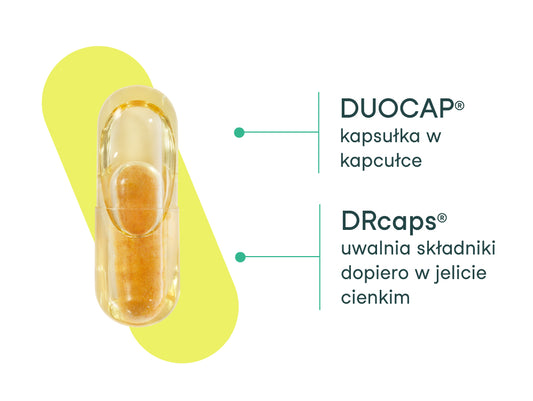
So far you haven't been a big fan of ice cream, but since you're pregnant, strawberry ice cream has been high on your daily menu list? Or maybe you're reading an article while eating a cucumber dipped in cherry jam? From the article you will learn whether cravings during pregnancy are normal and how to deal with them.
A healthy diet during pregnancy is extremely important for the proper development of the unborn child. However, many women display strange taste preferences that are infamously known as pregnancy cravings . As it turns out, up to ¾ of women report such cravings at some stage of pregnancy. It usually happens in the first trimester and concerns the desire for sweets, dairy products or salty foods in unusual combinations. Cravings can be unusual (cake and black olives, pickled cucumbers with jam), sublime (spiced cookies with milk, strawberry ice cream from a specific company), simple (hectoliters of milk) or "healthy" (wholesale amounts of citrus fruits).
However, sometimes they take the form of dangerous and threatening situations . Some women desire to eat things that are not food: earth ( geophagia ), raw starch ( amylophagia ), ice ( pagophagia ), charcoal, ash, paper, chalk, fabrics, coffee grounds, and eggshells. This behavior is included in the disease classification as pica .
Giving in to some pregnancy cravings can be harmful to your health!
Pica, or the intentional consumption of non-food substances, is a thousand-year-old nutritional puzzle. It is ubiquitous around the world and widespread among pregnant women and children. As it turns out, it is most likely related to micronutrient deficiencies . Doctors and scientists have already investigated many proposed causes of this, including cultural expectations, psychological stress, hunger, indigestion, and micronutrient deficiencies (iron, zinc and calcium). There are still no clear findings as to the causes of such cravings during pregnancy, especially since they disappear with the birth of the child.
Pica has complications depending on the type of substance consumed:
- Geophagy. Ingestion of earth and clay can lead to constipation, hypokalemia and nutritional deficiencies. Clay can also be a source of many infectious agents, such as parasites. There is also a risk of lead poisoning.
- Pagophagia. Ice consumption may lead to iron deficiency. Other complications include tooth decay and tooth sensitivity.
- Mylophagia. Excessive starch consumption is associated with iron deficiency. It can also cause high blood sugar and obesity due to its high carbohydrate content.
- Other substances. Ingested materials can contain a wide range of toxic contaminants such as lead, mercury, arsenic, fluoride and many others.
Pica during pregnancy can have tragic consequences for the developing fetus. There have been reports of intrauterine toxicity due to maternal drinking. Lead poisoning is associated with long-term neurological disability . Maternal geophagia has been linked to delayed motor function in the child.
Where do cravings come from during pregnancy?
Many experts believe that they are the result of hormonal changes taking place in a woman's body (after all, they often experience a similar phenomenon before menstruation). Hormonal changes combined with a heightened sense of taste and smell result in aversion to some foods and cravings for other foods. Another theory points to nutritional deficiencies as the source of cravings. Undoubtedly, they could have been important in ancient times. However, the craving for a Snickers bar cannot be justified by the lack of any specific ingredient available only in it.
It appears that food cravings are influenced by physiological, psychological and cultural factors . Dealing with them is not very complicated at all. Here's what will help you control your cravings :
1. Look for substitutes.
If you feel like eating something not very nutritious, try to look for a better alternative. Instead of ice cream, you can eat frozen yogurt, replace the colored carbonated drink with juice diluted with carbonated water. Replace your craving for caramels with, for example, dried fruit.
2. Use moderation.
If you feel like having chocolate, ok, but let it be 1-2 cubes, not the whole bar. Enjoy the taste to reduce portion size.
3. Give way.
Cravings are usually short-lived (they go away after the first trimester), and combined with common sense (agreeing to one cookie, but not the whole package) will not cause much havoc.
Remember that a healthy, balanced diet, regularly eaten meals, openness to new healthy foods - all this prevents cravings, especially those caused by hunger.
Have you heard that cravings for sweets were associated with the birth of a daughter, and appetite for cheese and meat with a male child? And although such conclusions have no scientific basis, cravings and myths about them have accompanied women for many centuries.
Bibliography:
- Young S.L. Pica in pregnancy: new ideas about an old condition. Annu Rev Nutr. 2010 Aug 21;30:403-22.
- Al Nasser Y, Muco E, Alsaad AJ. Pica. 2022 Jun 27. In: StatPearls [Internet]. Treasure Island (FL): StatPearls Publishing; 2022.
- Jouanne M, Oddoux S, Noël A, Voisin-Chiret AS. Nutrient Requirements during Pregnancy and Lactation. Nutrients. 2021 Feb 21;13(2):692.


What makes our capsule stand out?
The nikalab capsule impresses not only with its appearance, but also with its operation. We used two innovative...








